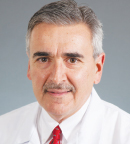
Lisa Carey, MD
LISA CAREY, MD, the Richardson and Marilyn Jacobs Preyer Distinguished Professor in Breast Cancer Research at the University of North Carolina, Chapel Hill, commented as the invited discussant for TAILORx, and Dawn L. Hershman, MD, FASCO, Professor of Medicine and Epidemiology and Leader of the Breast Cancer Program at the Herbert Irving Comprehensive Cancer Center at NewYork-Presbyterian/Columbia University Medical Center, New York, offered her thoughts in an interview with The ASCO Post.
“Looking at the Kaplan-Meier curves, it’s appropriate to conclude that endocrine therapy alone is not inferior to endocrine therapy plus chemotherapy in this population,” Dr. Carey said. “The randomized participants [in both arms] are doing exceptionally well. The relapse-free interval was greater than 92%, and the distant relapse–free interval was more than 94% in both arms. With modern care, this is a really good-prognosis group.”
She noted, “While [patients with] tumors up to 5 cm were permitted on the trial, the vast majority of the tumors were T1 or no larger than 2 cm—thus, this is largely a stage I population.”
Spectrum of Benefit
THE AGE-RELATED nuances of the findings were explored in the analysis of patients ≤ 50 years old, and in this group, more research is needed to optimize treatment, she said. “In patients over 50, there was no hint of a change with chemotherapy along the entire continuum up to a recurrence score of 25. But in the younger patients, you start to see the benefit of chemotherapy. Once you get past a score of 20, you start to see an absolute benefit of about 5%,” Dr. Carey pointed out.
While these findings came from an unplanned exploratory analysis, she believes they are “biologically plausible” in that chemotherapy can trigger ovarian suppression that can improve outcomes. Other features not yet clear could also explain the benefit of chemotherapy in younger patients with somewhat lower recurrence scores, she said.
She said the study’s findings confirm the key recommendations for treatment in postmenopausal women with recurrence scores ≥ 31 and in those with recurrence scores < 18, but they suggest women with a recurrence score of 25 also have good outcomes. Therefore, “the area of uncertainty” now falls between 25 and 31, she said.
“These recurrence scores are continuous functions. There’s a point at which a chemotherapy benefit begins to accrue, and it’s not clear where,” she commented. In the premenopausal setting, similarly, treatment for recurrence scores > 31 and < 18 remains clear, “but now we have the suggestion that you start to accrue the chemotherapy benefit within that 16- to-25 range, particularly with recurrence scores over 21,” she continued.
“Estrogen receptor–positive, HER2-negative, node-negative breast cancer is clearly ripe for de-escalation strategies that allow us to rationally reduce chemotherapy,” Dr. Carey offered.
‘Highly Impactful Trial’

Dawn L. Hershman, MD, FASCO
DR. HERSHMAN added, “TAILORx was a highly impactful trial that provides much-needed data to help patients make what has been a very difficult decision and makes it clear that postmenopausal patients with hormone receptor–positive stage I breast cancer don’t need chemotherapy.”
As caveats, she emphasized that the results should be applied only to the types of patients enrolled in this study and noted that 18% of women assigned to chemotherapy did not receive that treatment. She also agreed with Dr. Carey, noting it is unclear whether the benefit observed in women aged 50 and younger was from chemotherapy or from the ovarian suppression effects of chemotherapy.
Dr. Hershman emphasized “the importance of hormonal therapy for hormone receptor–positive patients,” urging oncologists to “make sure patients understand these results do not mean they can avoid all therapy. Endocrine therapy is critically important, and completing and adhering to the 5 or possibly 10 years of it is essential—since it’s the endocrine therapy that will be reducing their risk of breast cancer recurrence.” ■
DISCLOSURE: Drs. Carey and Hershman reported no conflicts of interest.


